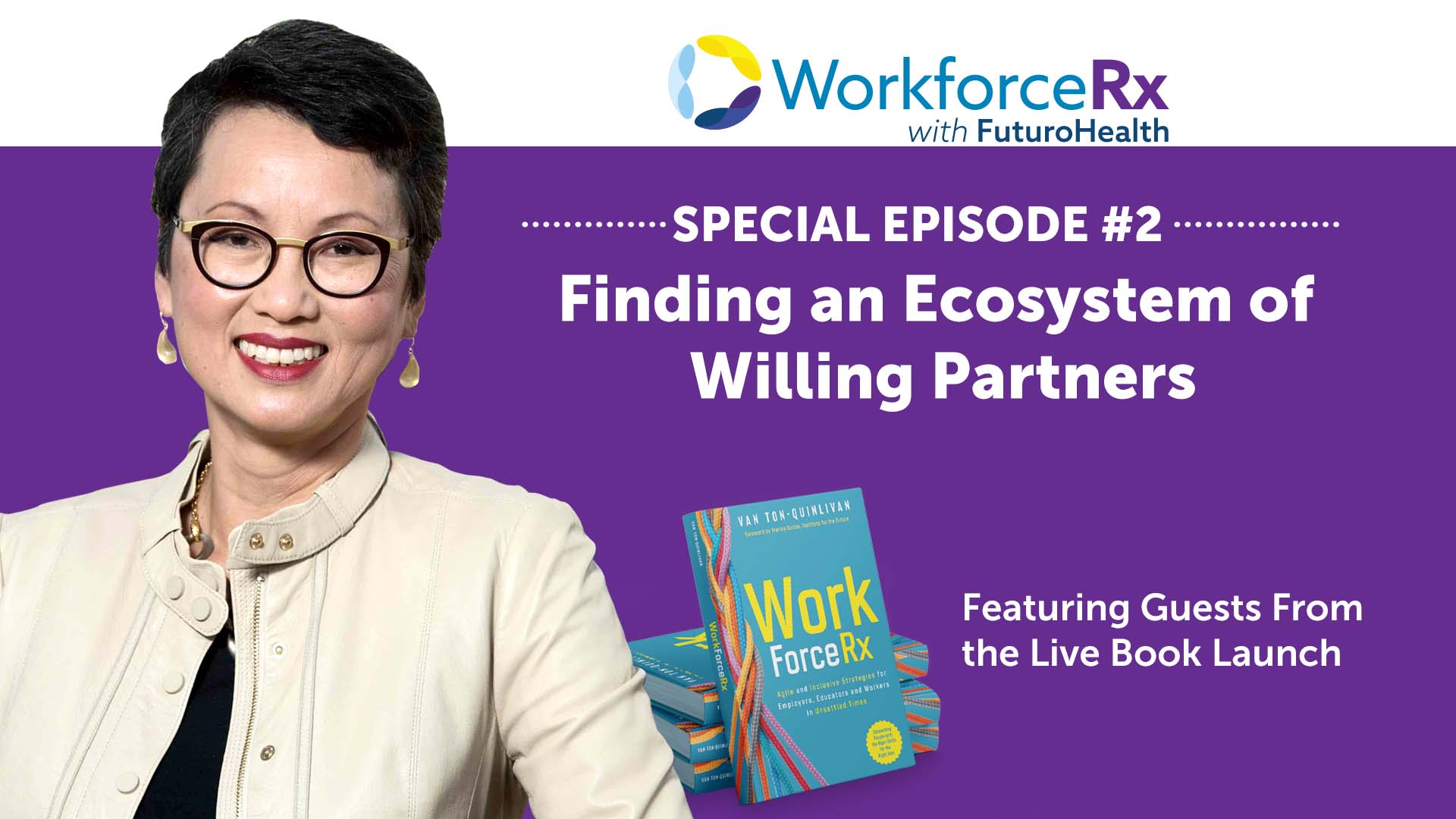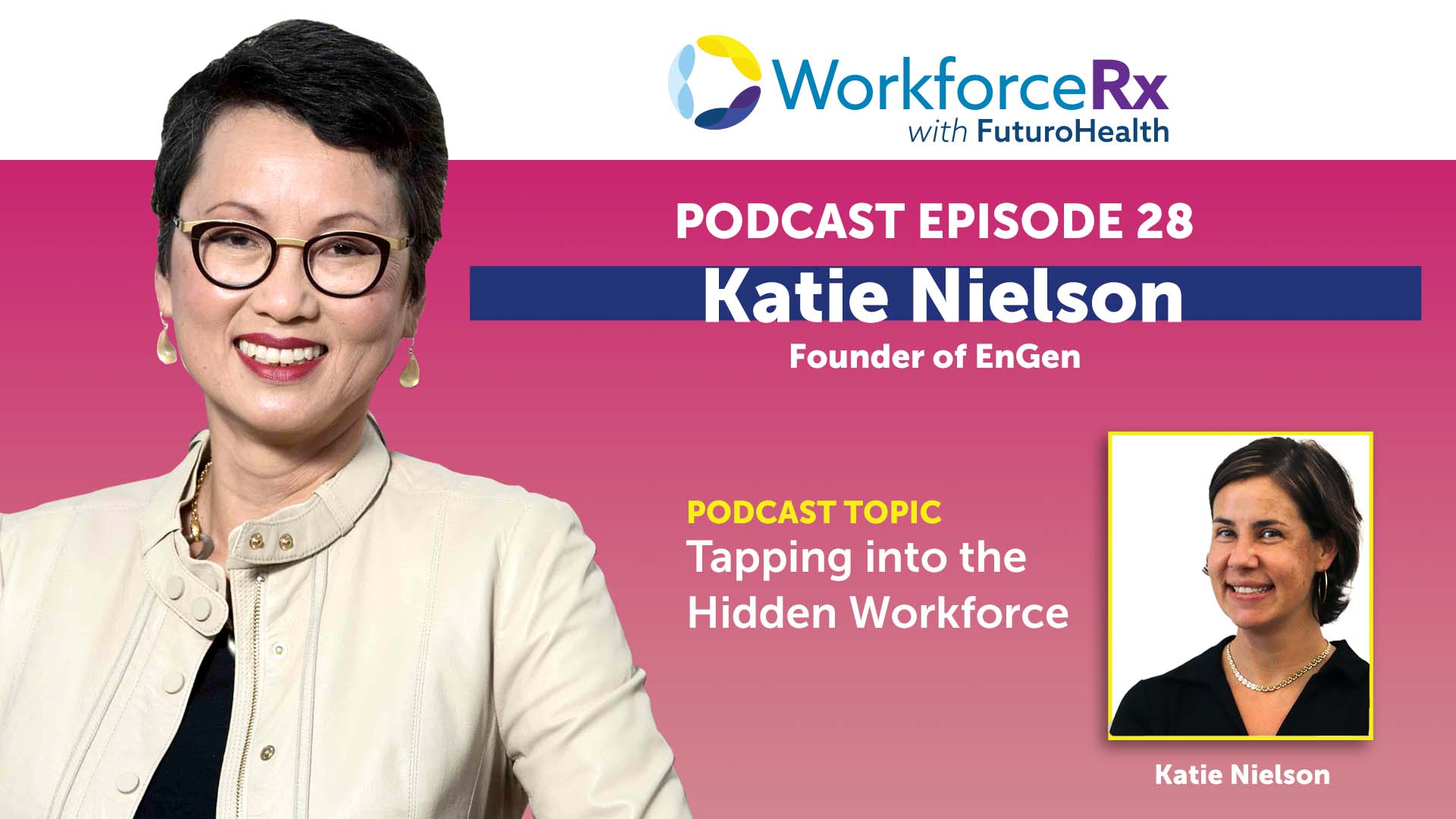Van Ton-Quinlivan, CEO of Futuro Health and host of the show, is also author of the new best-selling book, WorkforceRx: Agile and Inclusive Strategies for Employers, Educators and Workers in Unsettled Times. In this episode, Van welcomes some of the nation’s leading workforce development experts to discuss which strategies and insights from Chapters Three and Four resonated most with them. Check out their lively discussion about giving employers a role in shaping curriculum, making education and training more affordable and flexible, finding an ecosystem of willing partners and much more from this powerful new playbook for the future of work.
Joining Van are: Rachel Unruh, Chief of External Affairs with the National Skills Coalition; Amy Wallace, former Deputy Director at the California Workforce Development Board; Debra Jones & Lynn Shaw, former system leaders with the California Community Colleges; Flannery Hauck, Director with SEIU-UHW; Kai Drekmeier, Chief Development Officer with Inside Track; Fred Freedman, Chief Executive Officer of Pima Medical Institute; and Katie Nielson, Chief Education Officer of EnGen.
Continue reading

